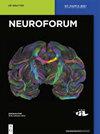从直觉到内脏疼痛的记忆
Q3 Medicine
引用次数: 3
摘要
疼痛相关的恐惧学习和记忆过程在慢性疼痛的恐惧-回避模型中扮演着重要的角色。内感受性内脏疼痛的独特生物学特征及其认知、情感和动机方面促进了联想学习。条条性恐惧在原则上是适应性的,但也可能变得不适应,并导致慢性疼痛的过度警觉和痛觉过敏。这篇综述总结了目前关于疼痛相关记忆的形成、消失和恢复的知识,重点是内脏疼痛。它提供了一个概念背景,描述了实验方法,并总结了健康人类和慢性疼痛患者的行为和神经机制的发现。未来的研究方向强调了对联想学习在肠-脑相互作用紊乱(如肠易激综合征)的病理生理学和慢性内脏疼痛治疗中的作用的认识的潜力。本文章由计算机程序翻译,如有差异,请以英文原文为准。
From gut feelings to memories of visceral pain
Abstract The role of pain-related fear learning and memory processes, conceptually embedded within the fear-avoidance model of chronic pain, is increasingly recognized. The unique biological salience of interoceptive, visceral pain with its cognitive, emotional, and motivational facets fosters associative learning. Conditioned fear is in principle adaptive but may turn maladaptive and contribute to hypervigilance and hyperalgesia in chronic pain. This review summarizes current knowledge on the formation, extinction, and return of pain-related memories with a focus on visceral pain. It provides a conceptual background, describes experimental approaches, and summarizes findings on behavioral and neural mechanisms in healthy humans and patients with chronic pain. Future directions underscore the potential of refining knowledge on the role of associative learning in the pathophysiology and treatment of chronic visceral pain in disorders of gut–brain interactions such as irritable bowel syndrome.
求助全文
通过发布文献求助,成功后即可免费获取论文全文。
去求助
来源期刊

Neuroforum
NEUROSCIENCES-
CiteScore
1.70
自引率
0.00%
发文量
30
期刊介绍:
Neuroforum publishes invited review articles from all areas in neuroscience. Readership includes besides basic and medical neuroscientists also journalists, practicing physicians, school teachers and students. Neuroforum reports on all topics in neuroscience – from molecules to the neuronal networks, from synapses to bioethics.
 求助内容:
求助内容: 应助结果提醒方式:
应助结果提醒方式:


